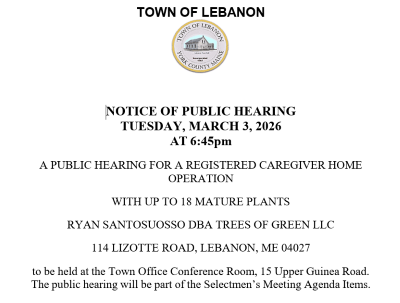CONCORD - The National Weather Service has issued several watches and warnings related to floods and strong winds throughout New Hampshire starting late tonight, prompting the New Hampshire Department of Safety's Division of Homeland Security and Emergency Management to urge residents to take action ahead of the storm.
Strafford County is among the counties under a Flood Watch from Friday morning through Saturday morning. Heavy rainfall could cause flash flooding and snow melt could cause some small-stream and river flooding in low-lying areas.
Strafford county is also under a High Wind Warning from early Friday morning through early Saturday morning. Winds are expected to range from 25 mph to 35 mph with gusts up to 60 mph.
"It's important for residents and visitors to stay informed as the storm progresses," said HSEM Director Robert Buxton. "Keep you and your family safe by having a plan and making a kit. Make sure any items that are outdoors are secured or move them inside."
High winds also increase the potential for power outages. Report power outages to your utility provider every 24 hours until it is restored:
Eversource 1-800-662-7764
Liberty Utilities 1-855-349-9455
NH Electric Co-Op 1-800-343-6432
Unitil 1-888-301-7700
Buxton also makes the following safety recommendations:
· Stay informed by signing up for NH Alerts and monitoring National Weather Service radio or broadcast weather reports.
· Avoid walking or driving through flood waters.
· Just 6 inches of moving water can knock you down, and 1 foot of water can sweep your vehicle away. Use a stick to check the firmness of the ground in front of you.
· If you must evacuate, secure your home, including disconnecting electrical appliances.
· If floodwaters rise around your car but the water is not moving, abandon the car and move to higher ground. Do not leave the car and enter moving water. Just 6 inches of water can reach the bottom of most passenger cars causing loss of control and possible stalling.
· Avoid floodwaters as they may be contaminated by oil, gasoline, or raw sewage. Water may also be electrically charged from underground or downed power lines.
· Use flashlights, rather than candles, for emergency lighting.
· Do not use a gas range or oven as an alternate source of heat.
· Only use a generator that has been wired to the building electrical service by a professional electrician.
· Never run a generator inside a building or in an enclosed space and keep them 10 feet away from buildings with the exhaust pointed away.














